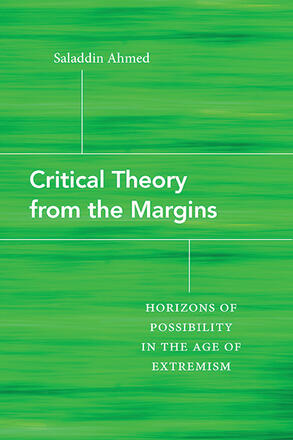
Critical Theory from the Margins
Horizons of Possibility in the Age of Extremism
Alternative formats available from:
Putting at work a negative pedagogy centered around learning from unlearning, problematizes and boldly challenges today's culturalist discourses, camouflaged racisms, and masked fascisms.
Description
Great critical theorists from Marx and Engels to Adorno and Horkheimer not only came from the margins but also stayed faithful to the plight of the marginalized. They refused to compromise about the struggle for equality and tried to universalize its emancipatory essence. From Marx to Benjamin, critical philosophers who showed fidelity to the cause were denied a career in European universities and made impoverished, stateless, and homeless. Marginalization and critical theory are inseparable; yet, today, Marxism is institutionalized, and the Frankfurt School's Critical Theory is gentrified. Critical Theory from the Margins, however, revives the Critical Theory that endorses criticism, aiming to negate dominant regimes of truth. It is unapologetic in its fidelity to the universalist struggles of the minoritized. In that spirit, Saladdin Ahmed shows that capitalism imposes a totalitarian social mode of existence and neoliberalism perpetuates fascism as a class of ideology across nationalist and religious movements. This book, then, is both a theorization and an argument in favor of the application of the episteme of the silenced as the essence of the critical education necessary for achieving universal emancipation.
Saladdin Ahmed is Visiting Assistant Professor of Political Science at Union College. He is the author of Totalitarian Space and the Destruction of Aura, also published by SUNY Press.
Reviews
"Identifying glimmers of hope in our dark ages is no easy task, yet that is exactly what Saladdin Ahmed achieves in this book. Uncompromising analysis of the current stage of capitalism and of the fascist ideologies it carries along, combined with innovative interpretations of critical theories of the past, lead to the delineation of 'horizons of possibility' that could provide strategic guidance to contemporary global social movements." — Razmig Keucheyan, University of Paris-Sorbonne
"Saladdin Ahmed draws from the Frankfurt School and the practice of emancipatory movements to produce Critical Theory from the margins about a reality of oppressions and totalitarianisms. He is anything but a conformist. From this epistemological base, he undertakes several daunting tasks. He examines the regime of totalitarian manipulation in which a culture is mass-produced about the Others that results in representations devoid of aura that look as dull as serial reproductions of great works of art. He explores the Fascisms of our times outside Western Europe and thus purges the theory on Fascism of its Eurocentric connotations. He discusses how 'culture' is used as a pseudo-concept to depoliticize the affairs of non-white Others. By taking up critical theory from the point of view of the marginalized, Ahmed not only makes it more Benjaminian and Adornian, he puts it at the service of the struggles of the oppressed." — Gilberto Conde, author of Fluid Modernity: The Politics of Water in the Middle East
"Ahmed's intervention is a long overdue invitation to analyze and confront the creeping variations of the Eurocentric model of thought, governance, and 'culture' that has disguised itself and infiltrated our social world, ranging from everyday life trivial experiences to the larger sociopolitical and economic institutions. His powerful critique advances a line of scholarship that not only is critical but also comes out of an ontological urgency of reassessing what we have achieved and what we have lost in the Faustian sense." — Ahmad Mohammadpour, Bentley University